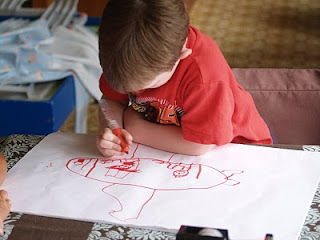Working with our youngest readers and writers
Research has confirmed the fact that writing leads to improved reading achievement and reading leads to better writing performance and linking the two leads to improvement in both areas (Deford 1981, Smith 1994, Tierney & Shanahan 1991)
It is for these reasons that we encourage our students as both readers and writers. Sacrificing writing to focus exclusively on improving reading scores flies in the face of the available research and teacher’s knowledge of the profession.
Despite the available research, a study conducted in 2001 by Burgess, Lundren, LIoyd and Pianta found that most early years teachers devoted appreciably less time to writing. In this instance the teacher’s beliefs about writing appeared to indicate they considered it less important. Reading clearly had a stronger influence on their instruction. Teachers beliefs can sometimes drive instructional practice in opposition to findings of the available research.
As the educator in me rose to the occasion, I asked if I could take the drawing home. This was gold! -Cooper often sends me pieces of his work. However, on this occasion he respectfully declined my request. He suggested I take a photo, as he wanted to keep this piece. This piece of writing; this story that he had created, was very much his to retain. Not only that, he wanted it placed in full public view on the lounge room wall. The sense of ownership was palpable. It was a salient lesson as to the importance of developing writing alongside reading. It was now time to read together, Cooper then informed me.







Very interesting this post for me. I have a doughter of 4 years old and she has learnt to read almost by herself because her teacher considers that she and her friens are too much young to teach them to read formally. I agree with you, so I'm afraid that I am begining to play with her and writting.
ReplyDeleteThank you and cheers.